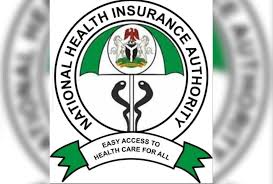The National Health Insurance Authority (NHIA) Act, 2022 established the NHIA as the sole regulator for Health Maintenance Organisations (HMOs) in Nigeria, replacing the earlier NHIS framework to drive universal health coverage. To ensure that HMOs operate within robust quality, financial and governance standards, the NHIA in March 2024 released its Stepwise Procedure for HMOs Accreditation, detailing every requirement, fee and process step for obtaining and renewing a HMO license. This guide synthesizes 100% of its information from the NHIA website, walking you through eligibility criteria, document checklists, capital thresholds, fee structures and the seven‑stage accreditation pathway.
Regulatory Framework
All HMO licensing in Nigeria is governed by the National Health Insurance Authority Act, 2022, which vests the NHIA with authority to accredit, supervise and renew HMOs nationwide. The NHIA’s mandate is realized through its Accreditation Division, headquartered at Plot 297, POW Mafemi Crescent, Utako, Abuja, and supported by state and zonal offices across the country.
Eligibility & Pre‑Application Requirements
Before submission, every prospective HMO must meet these non‑negotiable prerequisites as per the NHIA’s Stepwise Procedure for HMOs Accreditation:
1. Corporate Registration
-
Certificate of Incorporation from CAC as a private or public limited liability company.
-
Memorandum & Articles of Association explicitly allowing HMO operations.
2. Minimum Paid‑Up Share Capital
| HMO Tier | Minimum Capital (₦) | Asset Composition |
|---|---|---|
| National | 400 000 000 | Up to 30% in fixed assets; remaining in cash/working capital |
| Zonal | 200 000 000 | Up to 30% in fixed assets; remaining in cash/working capital |
| State | 100 000 000 | Up to 30% in fixed assets; remaining in cash/working capital |
Capital thresholds are subject to periodic NHIA review.
3. Advance Payment Guarantee
-
Security Deposit (Bond) of ₦50 000 000 or 1% of projected annual turnover, issued by an NHIA‑accredited insurer.
4. Operational Infrastructure
-
Head Office: National HMOs must have a zone‑level office in each geopolitical zone; zonal/state HMOs maintain regional head offices.
-
Quality Assurance System: Documented QA protocols and quarterly facility assessments.
-
Bank Accounts: Separate capitation, fee‑for‑service and administration‑charge accounts in an NHIA‑accredited bank.
Seven‑Stage Licensing Process
The NHIA’s published Stepwise Procedure for HMOs Accreditation outlines these sequential phases:
| Step | Activity |
|---|---|
| 1 | Document Preparation – Collate CAC papers, Board resolution, audited accounts, bond certificate. |
| 2 | Fee Payment – Remita payment of application and accreditation fees into NHIA’s Fund Account. |
| 3 | Submission – Deliver hard and electronic copies to the Accreditation Division, Abuja. |
| 4 | Preliminary Screening – NHIA checks completeness within 14 days of submission. |
| 5 | Site Inspection – NHIA team visits offices and reviews QA systems, infrastructure and bank setups. |
| 6 | Committee Review – Monthly meeting of the Accreditation Committee to approve compliant files. |
| 7 | License Issuance – Successful applicants receive a 2‑year Certificate of Accreditation. |
Fees & Financial Obligations
All fees are non‑refundable and payable upfront via REMITA, with proof of payment submitted alongside application documents.
| Fee Type | Amount (₦) | Validity / Notes |
|---|---|---|
| Application Fee | 100 000 | Covers document screening |
| Accreditation Fee | 500 000 | First‑time accreditation |
| Renewal Fee | 200 000 | Every two years |
| Security Deposit (Bond)** | 50 000 000 | Advance Payment Guarantee |
| Total Upfront Cost | 50 800 000 | Excludes share capital |
Frequently Asked Questions
Q: How long does the accreditation process take?
Typically 6–8 weeks from submission to license issuance, subject to inspection schedules.
Q: When must I renew my HMO license?
Accreditation is valid for two years; renewal applications should be submitted at least three months before expiry.
Q: Can I amend my share capital composition after accreditation?
Yes, approved HMOs may hold up to 45% of paid‑up capital in fixed assets upon renewal.
Q: What penalties apply for unlicensed HMO operations?
Fines of up to ₦2 million and/or imprisonment of up to five years under the NHIA Act, 2022.
Common Misconceptions
-
“I can pay fees after inspection.”
All fees are strictly pre‑payment and non‑refundable. -
“Only national HMOs need large capital.”
Even state‑level HMOs require a minimum of ₦100 million paid‑up capital. -
“Submission guarantees accreditation.”
Applications undergo screening, on‑site inspection and committee review; non‑compliance leads to rejection.
Conclusion
Securing a HMO license in Nigeria requires strict adherence to the NHIA’s Stepwise Procedure for HMOs Accreditation, available directly from the NHIA website’s Other Resources section. By meeting every capital, infrastructural and procedural requirement, submitting complete documentation, and paying the prescribed fees, your organisation can achieve and maintain compliance, positioning itself to deliver quality, cashless healthcare solutions across Nigeria.


